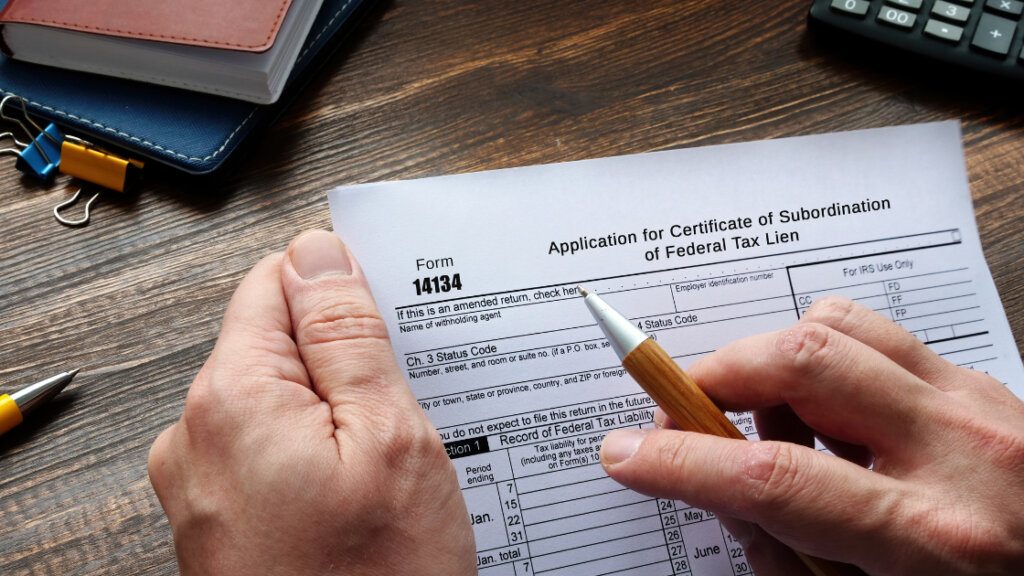
Buying a house is a big choice, and there are a lot of things to think about before putting in an offer. One of the most important things to look at is whether there are any liens on the land. A lien is a formal claim against a piece of property that lets creditors get back unpaid debts from the money made from selling the property. When you buy a property with a lien on it, you may end up being responsible for paying off the debt.
In this blog post, we’ll talk about everything you need to know about liens. Such as how they affect property control, how to finance a home with a lien, and how to get rid of them or work with them. We will also tell you how to protect yourself from hidden liens.
So, read on if you’re thinking about buying a property with a lien or if you want to learn more about this important part of real estate deals.
What is a Lien, and How Does It Affect Property Ownership?

A lien is a legal right that lets someone hold on to a property and sell it if the owner doesn’t pay their bills or taxes. Liens can make it hard for the owner to sell the land or give it to someone else. There are different kinds of liens, such as mortgage, tax, and mechanic’s liens.
Doing a title search before buying a property can help look up any current liens, which can then be taken care of before the deal is finalized. Before lending money to a borrower, a lender needs to check the property’s title to make sure there are no liens on it.
What are Property Tax Liens, and How Do They Affect Homebuying?
Property tax liens are legal claims on a property because property taxes have not been paid or have been paid late. These liens can lead to default or other legal actions in the long run. When a person buys a house with a tax lien on it, they are responsible for paying the back taxes. So, they need to look into and deal with any liens before closing the deal.
Mortgage Liens: What You Need to Know About Financing a Home with a Lien
When buying a home with a lien, it’s important to know how liens affect who owns the property. Tax liens are called “involuntary liens,” while mortgages are called “voluntary liens.” Liens can make it hard to sell or move a property until the debt is paid in full. If the debt isn’t paid, it could lead to foreclosure. To reduce this risk, it’s smart to look into other options. Like talking with the lienholder or buying title insurance in advance. Also, getting help from a real estate lawyer or a financial advisor can help you weigh your choices and reduce risks when getting a home loan.
The Role of the Real Estate Agent: How Can They Help You Navigate the Home Buying Process with Liens?

When buying a home with liens, a real estate agent is very important. They can spot houses that might have liens and assess the risks. Before you make an offer, they show you how to get a title check done to find out if there are any liens on a house. Also, agents can help you negotiate with lien holders and make sure that getting a home goes smoothly.
Purchase a Home with a Lien: Precautions, Negotiations, and Risks
When buying a home with an outstanding lien or legal claim against it, it’s important to do a thorough title check. Buyers should talk with the homeowner or lienholder to either pay off the debt. Do this before closing or change the price of the home to account for it. Getting help from a real estate agent or an expert can make this complicated process easier to handle. But buyers need to be aware of possible risks, such as extra costs and legal issues that could come up. It’s important to remember that dealing with property liens can be difficult, and it’s always best to get help from a professional.
The Tax Lien Certificate: What It Is, and How It Factors into Lien Transactions

A Tax Lien Certificate is a formal claim put on a property owner for unpaid taxes. Certificates like these can be bought by buyers at an auction. Winners of the auction get the right to collect the back taxes. Plus interest and penalties, from the homeowner, but they don’t get to own the land. Even though this may seem like a good idea, new investors should be careful and do a lot of study before buying Tax Lien Certificates. It is important to know the local rules about the different types of liens and how long you have to pay them off. Before buying a certificate from a city or the Internal Revenue Service (IRS), you need to do your research. This includes looking into any possible problems with missed taxes or liens. Investors will do well with Tax Lien Certificates if they know what they are doing and are careful.
Removing a Lien: Strategies and Options
Before closing on a property buy, it is important to clear the title of any liens, which can affect the owner’s rights. To get rid of a lien, you need to know about the different kinds of liens, such as voluntary and forced liens. One option is to negotiate with lienholders to settle or get rid of the liens. Homeowners could also hire a title company or lawyer to help them get rid of mechanic’s liens. In some situations, getting a safety bond or filing for bankruptcy may be good ways to get rid of a lien. Homeowners can make sure they have a clear title and a smooth close by looking into these options.
Judgment Liens: Another Type of Lien to Watch Out For
When buying a home, it’s important to know that judgment liens can leave landlords with financial and legal problems. Unpaid bills, like child support, can lead to these liens being put on a person’s property. It is important to do your due research to avoid problems. This requires a careful search of the property’s title to find any outstanding liens. If a judgment lien is found, it might be necessary to negotiate with the lienholder or look into choices like bankruptcy to get rid of the lien. It is best to get help from professionals like real estate attorneys and title companies when working with the different types of liens that can affect property ownership. With their knowledge, homeowners can deal with judgment liens and make sure the process of buying a home goes smoothly.
Uncovering Hidden Liens: How to Protect Yourself from Surprises

Before you buy a property, it’s important to understand the different types of liens that could affect it. Before making an offer or buying something, it’s important to do your study and due diligence. Take the time to learn about the property’s past owners and look through public records for any liens. To add an extra layer of safety, it’s best to hire a real estate lawyer who can do a thorough search for liens and give you title insurance.
The best thing to do is talk to the seller about any outstanding liens and try to get them taken care of before the sale is finished. But it’s also important to be ready for the unexpected. If any hidden liens come to light after the buy, you need a plan B. Options like buying title insurance or getting professional help from people who have dealt with similar situations before can give you the help you need to get through any problems that may come up.
By being cautious and careful, you can reduce the risks that come with liens and make sure that buying a house goes more smoothly and safely.
National Tax Lien Association: Resources for Homebuyers and Investors
The NTLA has a variety of tools for home buyers and investors who want to buy properties with liens. NTLA can help new buyers learn how to invest in tax liens. While experienced real estate developers can learn how to navigate the bidding process and make sure they have legal ownership of a property. One of the most important things you can learn is how to get a tax lien certificate. This will give you a formal claim for unpaid taxes on a property, which could lead to seizing it through foreclosure. Also, NTLA’s advice to do your homework before buying any type of lien will help you make smart choices based on your research and understanding of the redemption period.
Navigating Property Liens: What You Need to Know

When a creditor or entity wishes to secure a debt, they may put a lien on a property, asserting a legal claim to it until the debt is repaid. This lien gives them the right to foreclose on the property if necessary. For example, if a homeowner falls behind on their mortgage payments, the lender may place a lien on the home. The amount of the lien typically corresponds to the unpaid balance.
Having a lien on your home or property can complicate matters when it comes to selling or refinancing. Potential buyers or lenders may be hesitant to proceed if there’s a lien on the house. However, there are ways to address this issue. The lienholder can release the lien once the debt is satisfied, or the homeowner can take steps to remove the lien themselves.
Delinquent property taxes are a common reason for the placement of a lien. When a homeowner fails to pay their property taxes, a lien can be placed on the property. This lien remains with the property until the taxes are paid. If left unresolved, the property can be sold in a process known as a foreclosure to pay off the unpaid taxes.
Homeowners and potential buyers must be aware of the existence and implications of any liens on a property. Conducting a title search and staying up-to-date on property taxes can help avoid surprises and ensure a smooth buying or selling process. Seeking professional guidance is recommended to navigate the complexities of liens and protect your rights as an owner or purchaser.
How can I avoid the risks of buying a property with a lien?
To avoid the risks of buying a property with a lien, it’s important to conduct a title search and obtain title insurance. Working with an experienced real estate attorney can also help ensure that all liens are identified and resolved before the sale.
Key Takeaways
- Different types of liens can impact the process of purchasing a home, such as mortgage, tax, and judgment liens.
- Conducting thorough title and lien searches, asking the right questions, and working with an experienced real estate agent can help identify and resolve lien issues.
- Tax lien investing can be a profitable venture for those willing to navigate the complexities of the process.
- Resolving a lien on a property may involve negotiating settlements or paying off the lien to secure a clear title.
- Always exercise due diligence when buying a house with a lien to protect your investment and ensure a smooth transaction.
The Bottom Line
In conclusion, buying a property with a lien can be risky. It is important to understand the different types of liens that can affect property ownership and financing options. A real estate agent can help navigate this complex process and negotiate on your behalf. It is also crucial to do your due diligence in uncovering any hidden liens or judgments that could potentially cause issues down the line. The National Tax Lien Association provides resources for home buyers and investors to educate themselves on the risks associated with buying a property with a lien. Before making any decisions, make sure you have all the information you need to protect yourself and your investment.

Contact Us
We would love to hear from you! Please fill out this form and we will get in touch with you shortly.

